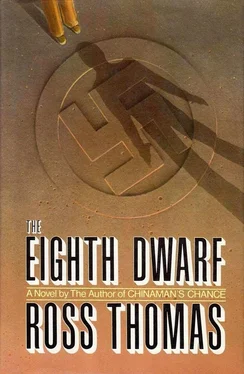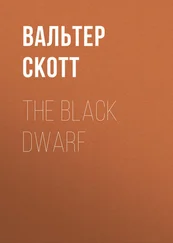“I’ll manage,” Jackson said, smiled, and pocketed the cards.
Lieutenant Meyer studied Jackson for several seconds. He took in the gray hair and the lean face with its almost too regular features. Had it not been for the not-quite gray eyes, the face would have been a toss-up between pleasant and handsome. The eyes made it too alert for either, Lieutenant Meyer decided. Much too alert. His brains leak out through his eyes. Otherwise he’d be Fraternity Row, maybe rush captain at Phi Delta Theta — if you took away ten years and all that gray hair.
“Let me guess,” Lieutenant Meyer said.
“Sure.”
“Dartmouth.”
Jackson shook his head and smiled slightly. “The University of Virginia.”
Lieutenant Meyer didn’t bother to keep the sneer out of his voice. “The gentleman factory.”
“I suppose.”
“You know something, Mr. Jackson, sir?”
“What?”
“I’ve been a little slow, maybe even a little dense, but I think I’m beginning to figure out why you’re in on this thing.”
“Why?”
“Money. There’s money in it somewhere, isn’t there?”
Jackson smiled again — a cool, remote, totally cynical smile. “You’re getting warm, Lieutenant. Very warm.”
At five minutes until nine the jeep, with Lieutenant Meyer at the wheel, drew up at the address near the Frankfurt zoo. Jackson used his lighter to examine the card the Air Corps Sergeant had given him.
“You’re sure this is the right address?”
“I’m sure,” Lieutenant Meyer said. “Some house, isn’t it?”
“Some house,” Jackson agreed, got out of the jeep, and reached for his bag.
Still staring at what he could see of the house, which was illuminated only by the lights that came from two of its windows and the jeep’s headlights, Lieutenant Meyer said, “Fifteen rooms. At least fifteen rooms. You sure you don’t know who owns it?”
“I have no idea.”
“Somebody rich.”
“Apparently.”
“Not even touched,” Lieutenant Meyer said, shaking his head. “You notice that? Both houses on either side wiped out by the bombs and this one’s not even touched.”
“I noticed.”
“You sure you don’t want me to wait?”
“For what?”
“To make sure it’s the right address.”
Jackson shook his head. “It’s the right address.”
“But you don’t even know who lives here.”
“I didn’t say that,” Jackson said. “I said I didn’t know who owns it.”
Lieutenant Meyer sighed. “More mystery-man shit.”
“Sorry.”
“Sure you are.” Lieutenant Meyer started the jeep. “Well, if you want to beckon and call some more, you know where I am.”
“I know. Thanks, Lieutenant, for everything. You’ve been most helpful.”
“I’ve been a stupid jerk is what I’ve been,” Lieutenant Meyer said, and drove off.
Jackson watched him go and then walked up to the iron gate set in the chest-high brick wall that seemed to surround the house. The gate was unlocked. Jackson went through it and up the stone path to the door. He tried the door, but it was locked. He took out the key that had been in the envelope along with the card and inserted it into the lock. It turned easily.
Jackson pushed open the door and went through it into an entry hall that was illuminated by a kerosene lamp. He put his bag down on the parquet floor and looked around. The lamp rested on a table. Farther back, a flight of stairs curved up to the second floor. To Jackson’s left were a pair of sliding doors. They were closed, but some light leaked out from underneath their lower edges.
Jackson went over to the doors and tried them. They were unlocked. He shoved them apart and went into a room that was lit by another kerosene lamp and the glow that came from the grate of a coal-burning fireplace. Two large, high-backed chairs were drawn up on either side of the fireplace. Next to one of the chairs was a small table. On it were two glasses and a bottle of whiskey.
Still looking around, Jackson noticed some dark oil paintings on two walls and in a far corner a baby-grand piano with its lid up.
“Where are you?” he said.
“Over here,” the dwarf said. “By the fire.”
Jackson moved over to the two large chairs, glanced briefly down at the dwarf, warmed his hands before the coal grate, and, without turning, said, “Where’re the women, Nick?”
Ploscaru wriggled with pleasure. It was exactly the cool and laconic greeting that he had hoped for. The American was so absolutely predictable.
“I’ve failed you, my boy,” Ploscaru said with mock despair. Then he brightened. “But there is a little parlormaid that we could scare up for you if...” He let the trail off and finished it with a small gesture.
“Never mind,” Jackson said, and turned from the blazing fire. “There’s no coal in Germany, Nick. I’ve been reading Time magazine. There’s no coal in the American Zone, anyway. When they divided Germany up, Russia got the wheat, Britain got the coal, and America got the scenery.”
“There’s a ton of coal in the cellar, I believe.”
The dwarf was wearing his green silk dressing gown and his red slippers. His green eyes seemed to dance with anticipation over the questions that he knew would come.
“Okay, Nick. Whose house?”
“A cousin’s. A distant cousin — thrice removed, as I belive you say in the States. He’s actually a Swede and he’s with the United Nations. Something called UNRRA, What ever does UNRRA stand for?”
“It’s the UN Relief and Rehabilitation Agency.”
“Yes, well, my cousin runs the DP camp at a place called Badenhausen. It used to be a concentration camp, I understand, but now they keep DP’s there. I wonder if any of those who are now its guests were once its inmates. Well, no matter. In any event, my cousin is on leave for a month, and so we have his house until then. It’s rather a nice place. Fourteen rooms, I think, with a staff of five. So much better than a hotel, don’t you agree?”
“Sure.”
“We’ll need a car, of course. The butler gave me a tip on one that we can look into tomorrow.”
“The butler.”
“Didn’t I mention the household staff? I thought I did. There’s the butler; the cook, of course; a gardener; and two maids. Rather decadently colonial, don’t you think? I mean, all the servants. Shall we have a drink? No bourbon, I’m afraid, but there is some rather decent Scotch.”
“I’ll fix them,” Jackson said, and stepped over to the glasses and the Scotch bottle. “Have a nice trip over?”
“Very pleasant.”
“Let me guess. The Air Corps again.”
“How very perceptive of you, Minor. There was this young captain that I’d known in Ploesti. Shot down, you know. He was only a second lieutenant then, but he still believes that I somehow saved his life. Well, I bumped into him in Washington and he mentioned that he was making what he called a ‘goodie run.’”
“A goodie run?”
“Yes, it seems that they sometimes do that — fly bombers full of luxury goods over to what the young Captain called the top brass. Rank has its privileges, Minor. So when I happened to mention that I was interested in getting to Germany, he wanted to know how I got along with animals. It turned out that part of his cargo was six Pekingese that belonged to some general’s wife. I get along famously with animals, as you know; even Pekingese, which are, quite frankly, terrible little beasts. So my young Captain and I struck a bargain. He agreed to give me a ride over if I would look after the dogs. It was a quite pleasant trip, as I said. Very quick. We didn’t even stop once, although we did land at Wiesbaden instead of Frankfurt, which was a bit inconvenient. A huge plane — one of these B-29 things. But there was miles of room so I had no trouble in bringing along a few cigarettes. How many did you bring?”
Читать дальше












